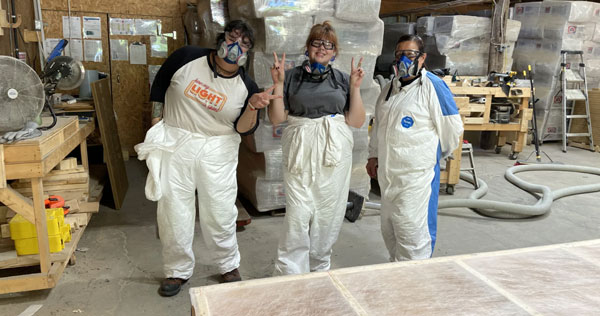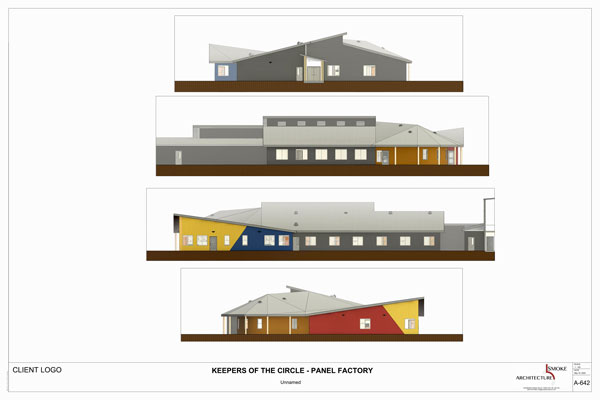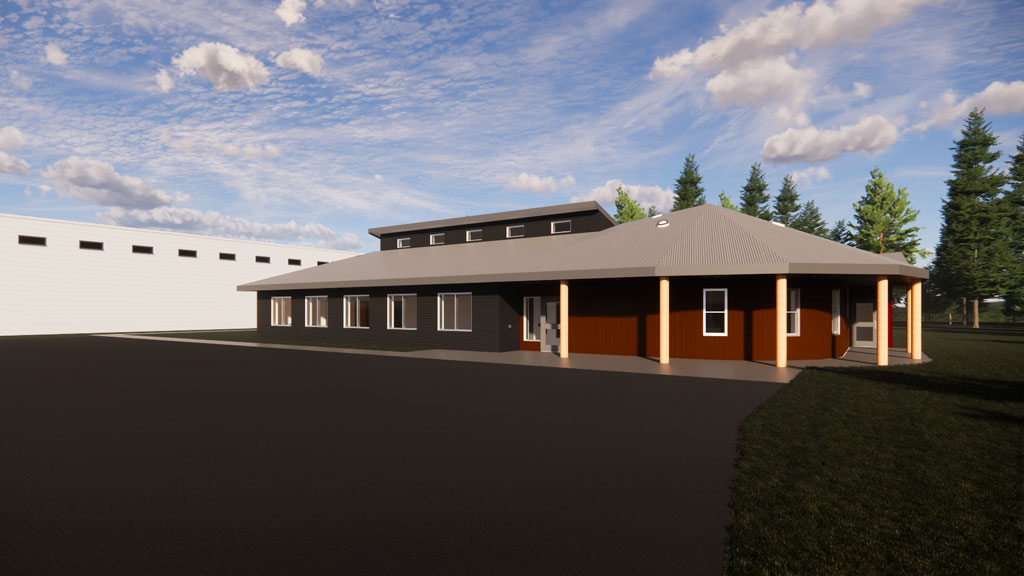An initiative to build a factory in Kirkland Lake to make prefabricated housing for Indigenous people in northern Ontario is being led by Indigenous women.
To date, Keepers of the Circle, the urban Indigenous hub behind the project, is training nine women in two cohorts through its partner Tooketree Passive Homes for the work ahead.
“They are building the panels for the administration building next to the factory,” says Bertha Cormier, executive director for Keepers, which is the Ontario representative of the Native Women’s Association of Canada.
Indigenous women will also operate the 24,000-square-foot factory that will produce three panelized home designs (one bedroom, four bedroom and a multi-unit) that meet Passive House standards. The factory is scheduled to open next spring.
“I think this facility is a call to action to be part of the solution to address the current realities of inadequate housing in our community in the north,” says Cormier.
Many homes in the north are more than 40 years old and need major repairs but the warming climate is shortening the season to transport building materials on winter roads to remote northern regions.
The factory homes will be built using sustainably-sourced materials to reduce the carbon footprint.
“These homes are so well sealed (insulated) that the energy costs will be reduced over the life of the homes.”

Cormier says Keepers’ first step is to manufacture the panels but eventually the objective will include teaming up with partners to provide all the components for completed homes, inside and out.
“You could haul up 10 or 12 of these panelized homes over the winter to a community and as the weather allows you could put those homes up in a week or two,” says Cormier.
By comparison, only two or three conventional stick frame homes might be built in a season in remote communities.
Keepers has retained Smoke Architecture Inc. for the project’s administration and training building which is comprised of a lightwood frame and prefabricated wood wall panel system supplied by Tooketree.
“The building should be very welcoming for the Indigenous women working there. There will be (design) patterns that are meaningful to them,” says Eladia Smoke, principal architect.
Smoke praises Keepers for employing local women for construction and providing them with ample support.
“I think the reason we have a skilled trades crisis in this country is because only five per cent of the trades are women. One of the reasons women can’t succeed is because they are not well supported” in the field and at home where they are often responsible for most domestic duties.

The architect says the initiative’s goal to build homes that fit with the lifestyles of Indigenous cultures is critical.
Designs will take into account potential overcrowding, privacy and Indigenous cultural activities such as a space where processing harvested food such as geese and ducks can be done.
The factory follows a pilot project by Keepers in which six Indigenous women worked with Oshkaabewis Engineering + Consulting to build a 600-square-foot home. The project was funded by the CMHC.
“In less than three months they built an off-grid 600-square-foot home and brought it back to the region and installed it in three days,” says Cormier.
Scheduled for completion next April, the factory will be built with funding primarily by the CMHC. Cormier is in discussions with other federal agencies for additional financing and Keepers is looking for financial help through the Small Change Fund.
In the meantime, Smoke Architecture is setting up a non-profit called Amplify Indigenous Voices in Architecture to support post-secondary Indigenous students.
Smoke says the building and design industries need more Indigenous architects and builders, but northern Indigenous youth face cultural barriers that can be difficult to overcome at colleges and universities in the south.
“Our young people need a cultural backup to help them succeed,” Smoke explains.
“There’s a great appetite right now in mainstream Canada to have Indigenous perspectives to inform the built environment.”
The construction manager for the factory development is Oshkaabewis.




Recent Comments